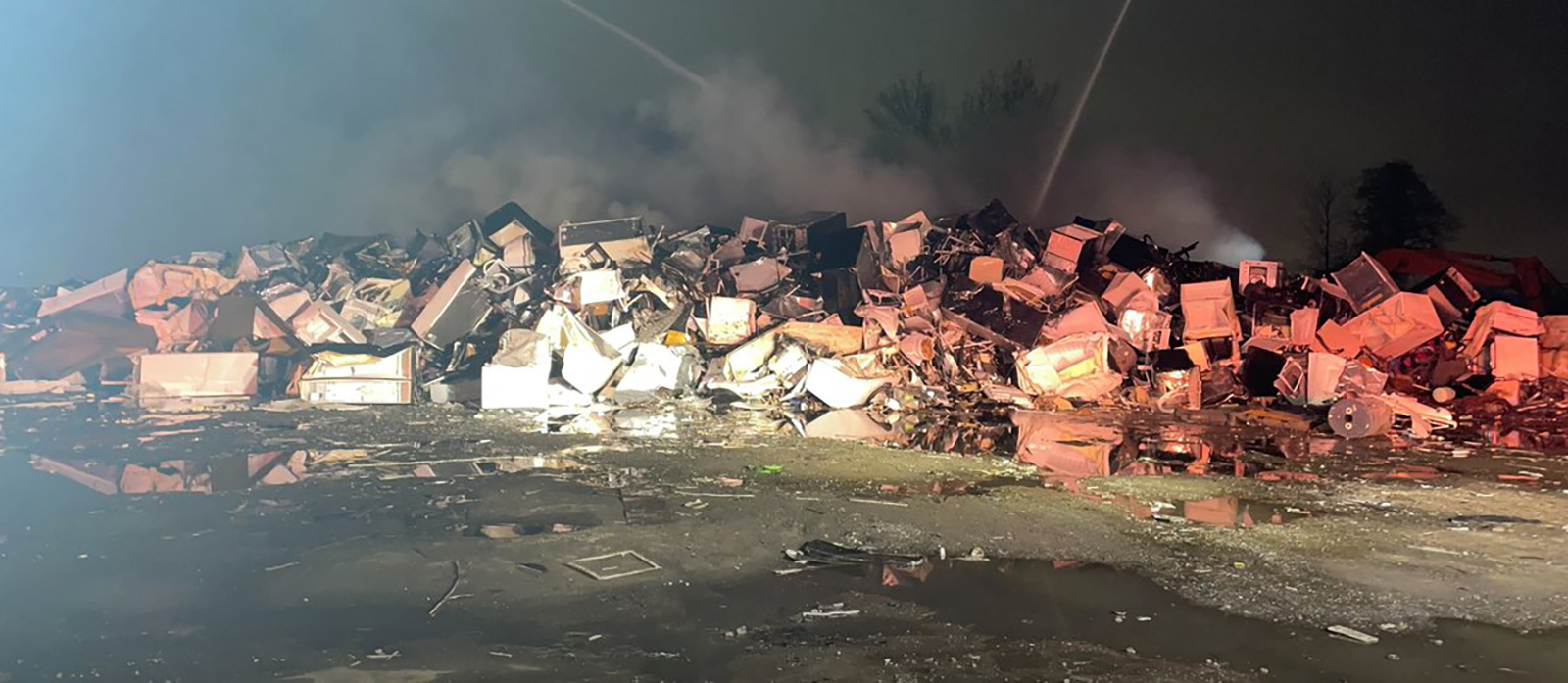New Research Finds Toxic ‘Forever Chemicals’ in Indoor Air
September 24, 2021
University of Rhode Island researchers have found that in addition to polluting food and water, per- and polyfluoroalkyl substances, better known as PFAS, are contaminating the indoor air we breathe.
First developed in the 1930s, PFAS were extensively used in the production of nonstick coatings, such as Teflon, Scotchguard stain and waterproofing, and firefighting foam.
When the chemicals’ hazards to human health became known in the 1960s, federal authorities began to phase out their production, but they continue to be used in some U.S. products, and more extensively in countries that export products to the United States.
PFAS can be found in food containers, carpets, and household products. Since they persist in the environment, they are known as “forever chemicals.”
In 2019, the Rhode Island Department of Health released the results of a study of every major drinking water supply in the state and found that PFAS were present in nearly half of them.
PFAS exposure can produce a range of serious health impacts, including impaired immune response, decreased fertility, increased cholesterol levels, and developmental effects in babies. The chemicals are ubiquitous. Every person living in the industrialized world has PFAS in their blood.
While much of the research on PFAS has focused on the chemicals’ persistence in food and drinking water, a team of scientists from URI’s Graduate School of Oceanography has found that indoor air is an underestimated and significant source of PFAS exposure, particularly for children.
Rainer Lohmann, oceanography professor and senior author of the study, published last month in the journal Environmental Science & Technology Letters, said the URI team had initially intended to study levels of PFAS in carpeting.
“As it turns out, the carpet manufacturers in the U.S. have basically phased out their use of PFAS in most of their products at this point,” he said.
The researchers switched their focus, measuring PFAS in indoor air. Samples were taken in several carpeted kindergarten classrooms, one home, and the storage room of an outdoor clothing store in California.
In Rhode Island, the team sampled indoor air at URI’s Bay Campus in Narragansett, in offices, laboratories, a classroom, a storage room, and one elevator. The air at two Rhode Island carpet stores was also sampled and tested.
PFAS were detected in the air at nearly every location.
The chemicals continue to be used in firefighting foam, household products, personal-care products, such as dental floss, and the grease-proof paper used in food packaging.
Environmental Protection Agency (EPA) spokesman Tim Carroll noted the federal agency has been regulating PFAS since the late 1970s under the Toxic Substances Control Act. He said certain PFAS chemicals are no longer produced domestically as a result of phase-outs.
Carroll said PFAS phase-outs are continuing, with the EPA preventing new “unsafe” PFAS from entering the domestic market and launching a new program to encourage companies to stop using them. The EPA does not currently regulate PFAS in the air.
As for URI’s research, Lohmann said the team will continue with studies on the impacts of human exposure to PFAS in the air.
“One of the next steps will look at some humans for which we know a little bit of what they’ve eaten in the past or drank in the past and go to their homes and see whether this indoor air and the indoor dust, whether that actually is a relevant contribution to their overall exposure to PFAS,” he said. “We’re trying to put all the pieces together.”




We need to use the precautionary principle. Do not let chemicals into circulation until they are proven safe. The current practice of only stopping the use of a chemical after it has already sickened or killed people is ridiculous and a complete sell out to the corporate criminals. Unfortunately the chemical companies buy a lot of legislators at both the state and national level.
Even though we don’t have info on "safe" levels of exposure, I’d still like to know more about the levels of PFAS the researchers found in the air. And I agree with Greg below. Also, unless and until our elected officials don’t have to beg for money and accept bribes from corporations, corporations will rule. They will continue to prioritize profit over the future and the wellbeing of the masses.